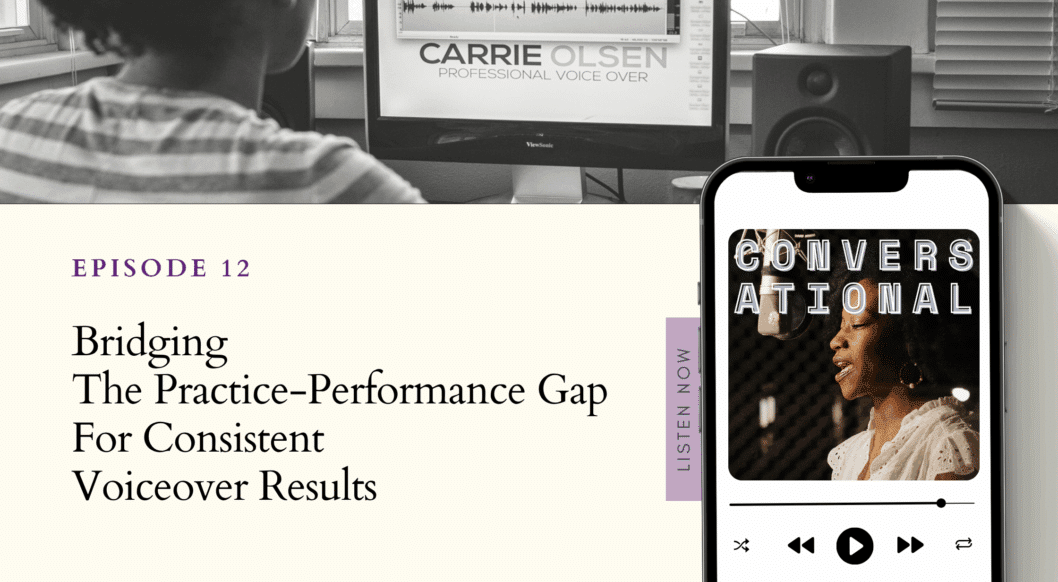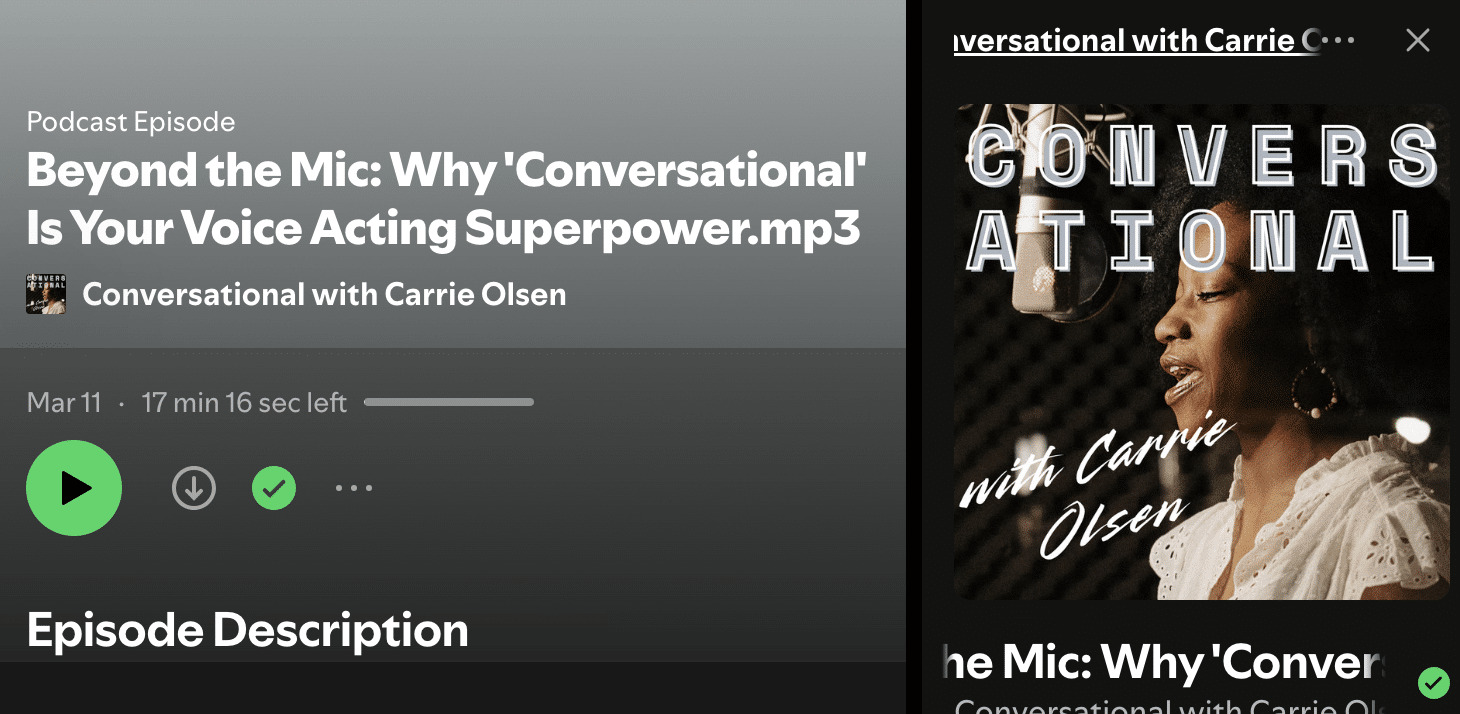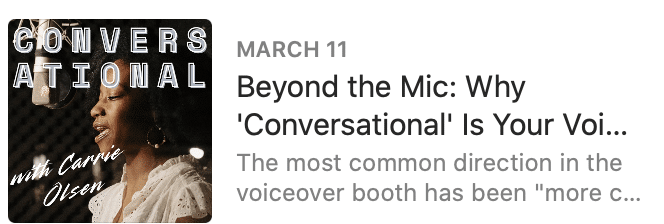
Episode 12: Bridging The Practice-Performance Gap For Consistent Voiceover Results
What if the reason your auditions don't reflect your training has nothing to do with your skills—and everything to do with how your brain compartmentalizes practice versus performance?
In this episode of "Conversational with Carrie Olsen," I explore the disconnect between training and performance and why it matters for your voice acting career and beyond. You'll discover how to bring all your hard-earned skills into every audition while staying authentic to who you are.
Episode Highlights:
- The Junior High Running Revelation - How a simple coaching tip about "not getting comfortable" transformed performance by bridging the mental gap between practice and competition (01:08)
- The Two-Compartment Problem - Why your brain treats practice sessions as "the real work" while letting auditions coast on autopilot, and how this sabotages your booking ratio (05:09)
- The Transfer Of Learning Problem - Dr. K. Anders Ericsson's research reveals that skills learned in one context don't automatically transfer to another unless we consciously activate them (09:42)
- The Psychology Of Compartmentalization - Understanding the three reasons our brains separate training from performance: safety versus evaluation, context-dependent learning, and ego depletion (10:17)
- The Four-Part Implementation System - Practical strategies including time allocation, pre-performance activation rituals, mindset resets, and training integration checklists that bridge the gap (13:52)
3 Key Takeaways
1. Treat Performance As Practice Under Observation
The mental barrier between practice and performance is artificial. When you reframe auditions as practice sessions where someone happens to be listening, you remove the threat response that blocks access to your acquired skills. This simple mindset shift allows your brain to engage the same way it does in coaching sessions.
2. Allocate Time That Matches Your Reality
If you respect practice enough to block dedicated time for it, your auditions deserve the same intentionality. Start with at least 30 minutes of focused prep work for each audition, treating it with the same priority as a paid coaching session. The time problem is really a priority problem—you prioritize what you truly care about.
3. Consciously Activate Your Training
Skills don't automatically transfer from practice to performance. Before every audition, spend 2-3 minutes asking yourself: What did I learn in my last coaching session? What technique applies to this script? How would I approach this if my coach were listening? This conscious connection tells your brain to bring forward everything you've learned.
My Perspective
I used to wait until right before auditions were due to start working on them, even when I had lead time. I was over-prioritizing practice as "the real work" while treating auditions like they should just flow automatically. But once I started treating every audition like a coaching session—complete with prep time, intentionality, and my notes from past sessions—everything changed. The work I'd put into training finally showed up where it counted.
What's Coming Next..
Next week, we'll continue our implementation series with more practical strategies for bringing your best work to every performance moment.
Action Step: The Consistent Performance Challenge
For the next week, treat every single performance moment—whether it's a practice session, coaching session, or actual audition—with the same level of intentionality. Block at least 30 minutes for preparation, use a pre-performance activation ritual to connect your training to the present moment, and apply a checklist to ensure you're using your training rather than just going through the motions. Document what happens: Do your auditions feel different? Do you access skills you forgot you had? Notice when your brain wants to separate practice mode from performance mode. Leave a comment and share your experience!
Resources Mentioned
- Dr. K. Anders Ericsson's research on the transfer of learning problem
- Dr. Matthew Lieberman's research on threat response during evaluation
- Dr. Roy Baumeister's research on ego depletion
Connect With Me
- Follow me on Instagram @carrieolsenvo
- Text VOICE to 55444 for my free resources
- Leave me a voice message to let me know what you thought of the episode
Subscribe & Review
If you loved this episode, please take a moment to subscribe and leave a review on Apple Podcasts! Your support helps us reach more people who need these conversations about authenticity and finding their voice. 🎙
Thanks for tuning in to Conversational with Carrie Olsen! See you next week!

"You're not starting from scratch with every audition. You have extensive training and capability. The question is, are you bringing it into the moment or leaving it back in practice mode?"




